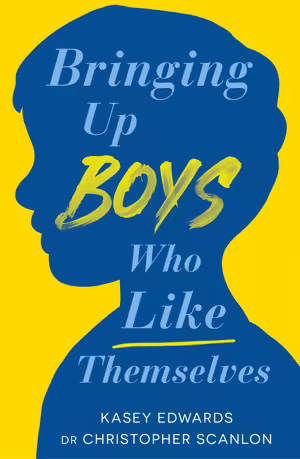
The following is an excerpt from Bringing Up Boys Who Like Themselves by Kasey Edwards and Dr Christopher Scanlon, a book about the seven pillars all boys need to grow into well-rounded, thriving young men who are ready for anything.
We were sitting in a cafe with three friends and excitedly telling them about our book Raising Girls Who Like Themselves, when, to our surprise, tears started to well in the eyes of one of our friends. "My son doesn't like himself," she said, reaching for a tissue. The second friend sat back in her chair, ran a hand over her face and whispered, "Mine doesn't either." All eyes turned to our third friend, also a mother of a boy. She paused for a moment before speaking. "I don't want to say this out loud," she said, her voice cracking. "But if I'm being really honest, I have to say my boy hasn't liked himself for a while."
We soon noticed our friends weren't the only ones with this concern. The questions started coming in on social media, in our webinars and in emails, and they haven't stopped: "What can I do so that my boy will like himself too?"
While you're here, watch why men are embarrassed to talk about mental health. Post continues after video.


